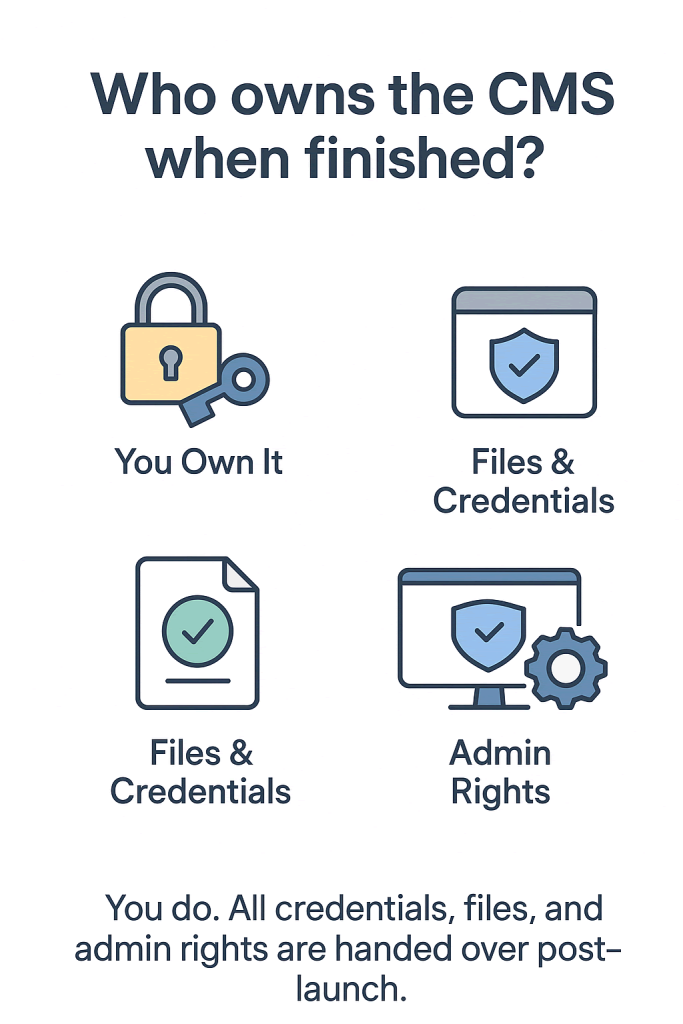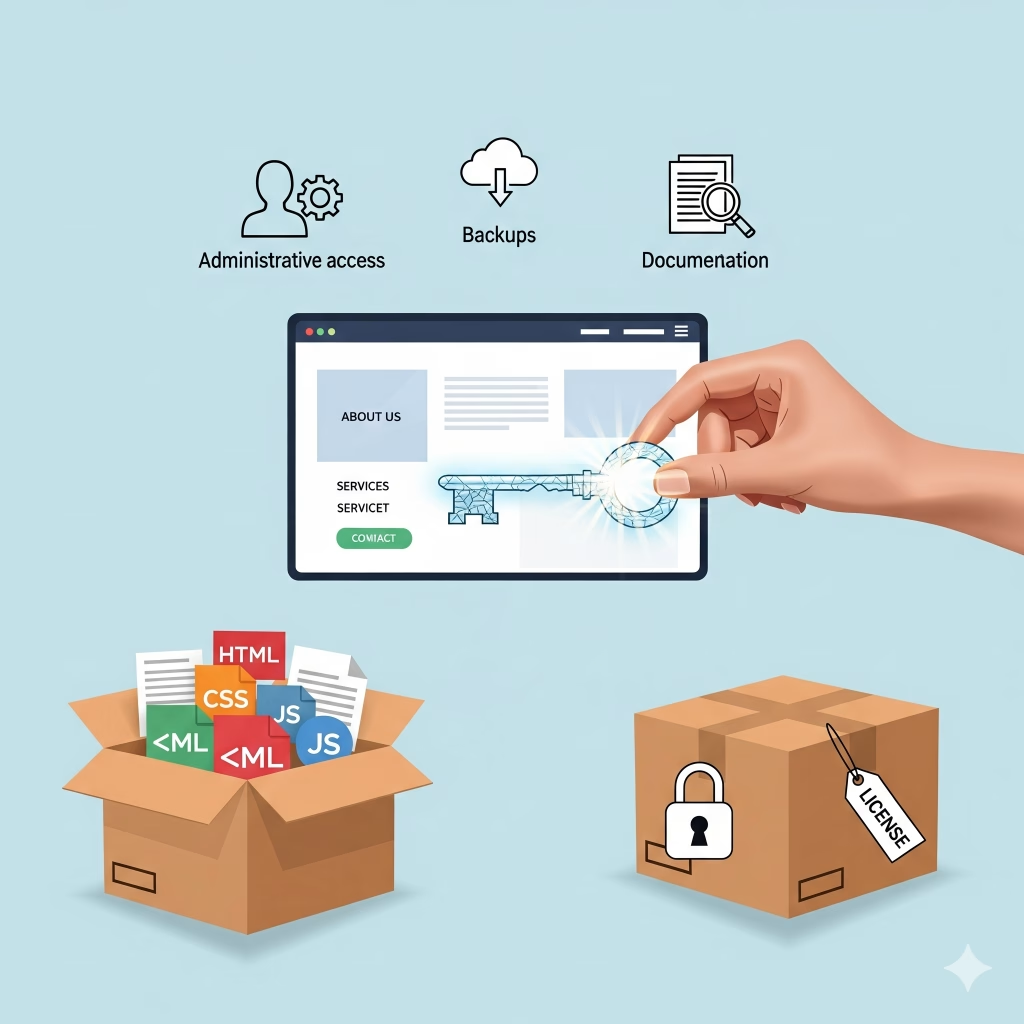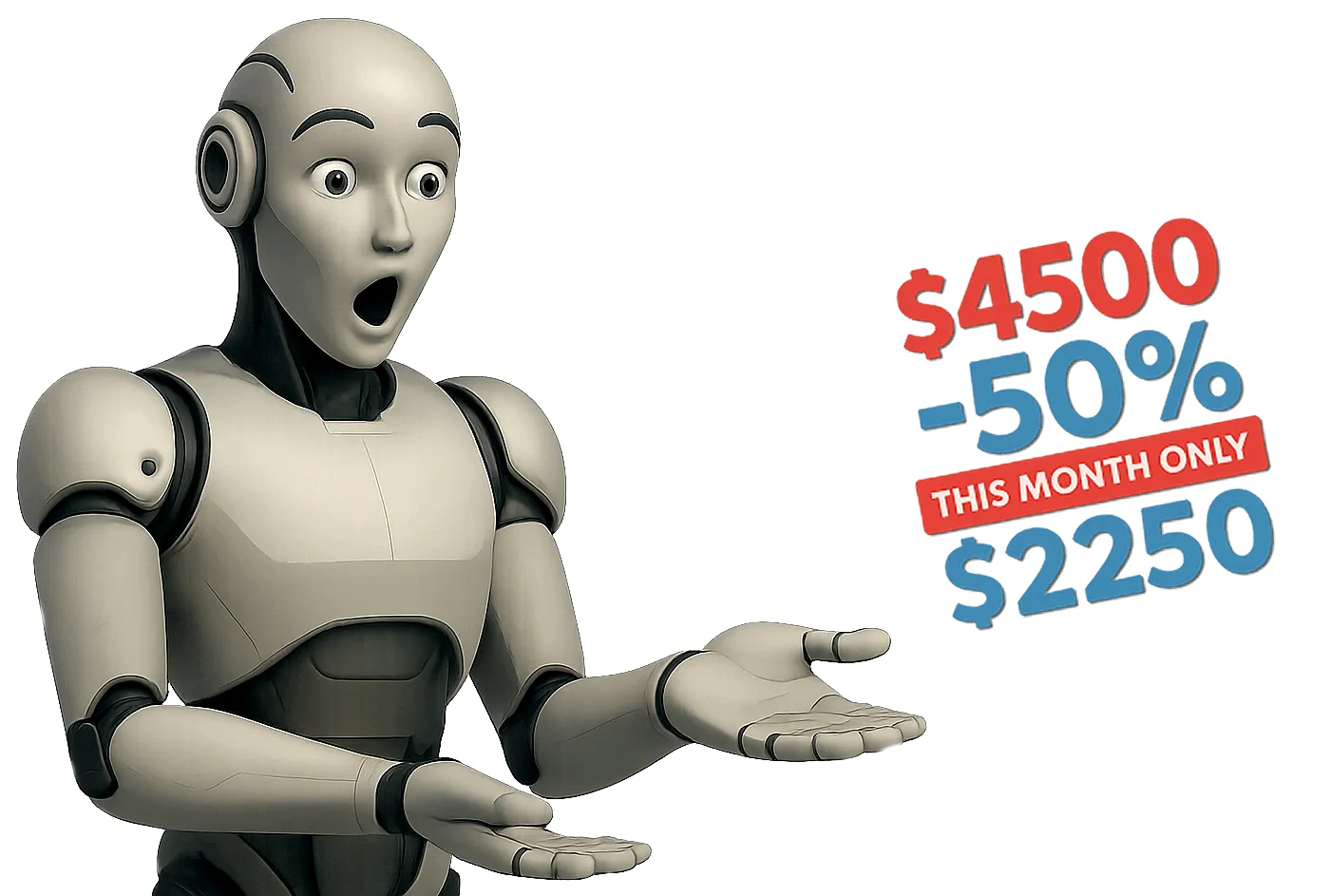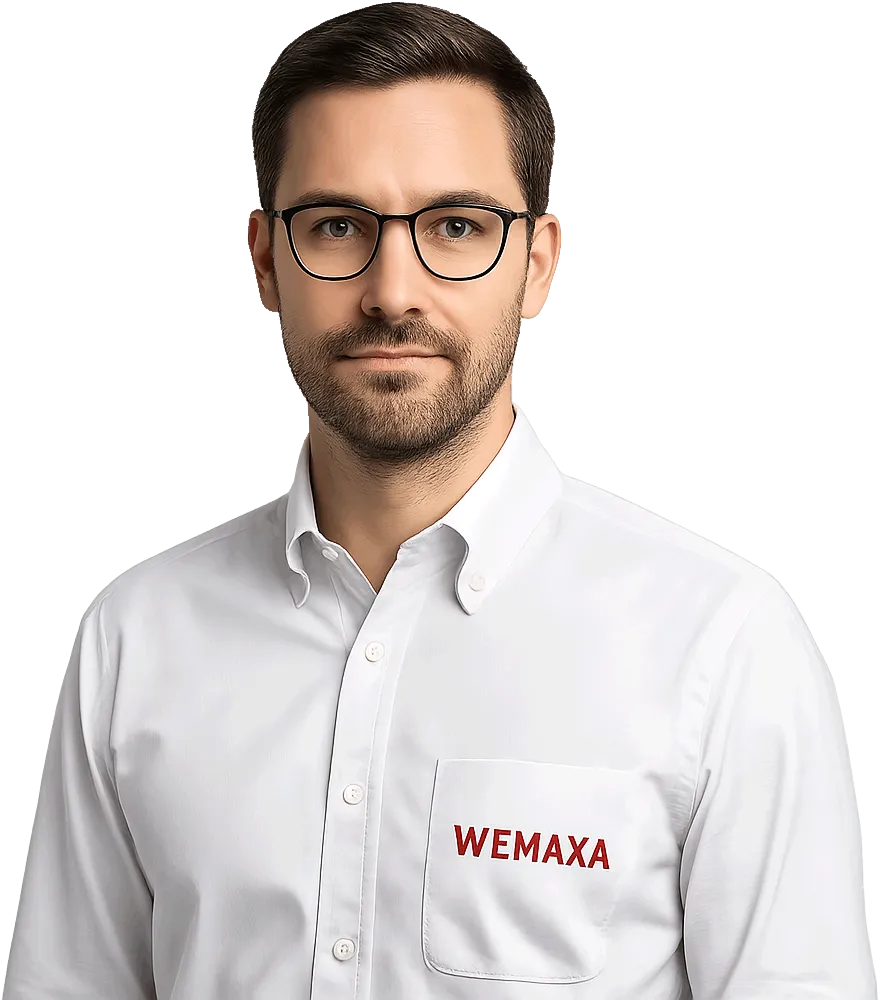
Once a CMS-based project like a WordPress website is complete, ownership usually depends on the terms outlined in your agreement with the developer or agency. In most cases, if you’ve paid for a custom build or a complete setup, you own the website and its content. This includes the domain name (if registered in your name), the site files, the database, and the rights to use the design and branding elements. However, it’s always important to clarify these details before the project begins to avoid confusion later.
📜 What Defines Ownership Legally:
- Written Agreement / Contract
- Terms of Payment
- License Agreements (for plugins/themes)
🛡️ To Ensure Ownership (if you’re the client):
- Request all admin access (WordPress, hosting, domain registrar)
- Ask for theme/plugin licenses to be in your name
- Get a signed handover document confirming transfer of ownership
- Back up the site once completed
🧾 If You Paid for the Project as a Client:
You own the entire CMS setup, including:
- ✅ The WordPress installation
- ✅ All custom code, themes, and plugins (unless licensed otherwise)
- ✅ The content and media
- ✅ The domain name (if it’s registered in your name)
- ✅ The hosting account (if it’s under your control)
Important: Ownership of premium themes or plugins might be licensed to the developer, not you. You’d need your own license if you want full control or updates.
Ultimately, the question of CMS ownership boils down to a simple principle: control equals independence. If your organization is serious about long-term digital growth, you cannot afford to surrender ownership of your content management system to an external party. By working with Wemaxa, you guarantee that your digital presence remains entirely yours, unrestricted, and adaptable to every new business challenge that arises. In a world where digital identity is as important as physical infrastructure, this level of ownership is not a luxury; it is an absolute necessity. Choosing an agency that aligns with this philosophy ensures that every investment you make in your website translates directly into long-term equity for your brand.
MORE LINKS:
What is wordpress?
WordPress theming.
AI chatbot installation
Recommend a CMS
WordPress for eshop
Updating wordpress
Managing content
Install plugins
WordPress security
WHO OWNS THE CMS ONCE THE DESIGN IS DONE?
Typically, you’ll have full administrative access to the CMS, which allows you to update content, add new pages, and manage plugins or features without needing further involvement from the original developer. You should also receive login credentials, backups, and documentation if requested. Some agencies offer ongoing maintenance as part of their package, but it’s your choice whether to continue with them or manage the site independently after delivery.
Keep in mind that not all elements of a website may be owned outright. For example, if premium themes, plugins, or stock assets are used, you may be granted a license rather than full ownership, depending on how they were purchased. It’s good practice to ask for a list of any third-party tools used so you can maintain or renew them as needed. Transparency here ensures that you can continue running the site without any surprises down the line.

Ultimately, a clear handover process should leave you with a fully functional website that you control. Whether you choose to maintain it yourself or rely on professional support, your CMS-based project should be built in a way that gives you freedom, flexibility, and full access to everything you’ve invested in. We always aim to ensure your ownership is respected and documented properly.
| Aspect | Owned by You (Client)? |
|---|---|
| Custom content/design | ✅ Yes |
| Open-source CMS (like WordPress itself) | ✅ Licensed to everyone |
| Custom code written for you | ✅ Yes (unless contract says otherwise) |
| Premium themes/plugins | ⚠️ Only if licensed to you |
| Hosting/domain | ✅ Yes, if you control it |
Who Owns the CMS Once the Project is Done?
One of the most common and sometimes overlooked questions in modern digital projects is what happens with ownership once the design and development phase has been completed. Many businesses, particularly small and mid-sized companies stepping into the digital ecosystem for the first time, find themselves unsure whether they are simply licensing access to a system or whether they truly gain full control over their Content Management System (CMS) once the work is delivered. At Wemaxa we make this process absolutely clear: when you invest in a website project, you are not just paying for a temporary solution. You are building a long-term digital asset that belongs to your company. Ownership of the CMS is central to this, because it directly influences your ability to scale your platform, control your content, maintain independence from vendors, and ensure that your digital operations remain cost-effective and sustainable over time.
In the broader web design and development industry, there are unfortunately many practices that attempt to lock clients into ongoing contracts by limiting their access to the CMS, withholding administrative credentials, or implementing proprietary systems that prevent migration or modification without the developer’s approval. This can place unnecessary restrictions on business growth and can even compromise your digital independence. The philosophy we stand behind is entirely different. By using open-source CMS frameworks such as WordPress, your organization not only receives a robust, global-standard content management tool but also gains the assurance that there are no hidden walls or artificial barriers. You hold full administrative rights once the project concludes, meaning you can add, edit, or remove content, install plugins, adjust themes, and even migrate the entire system to another hosting provider without requiring permission from any third-party vendor.
The importance of ownership in 2026 cannot be overstated. Businesses are moving faster than ever, adapting to new technologies such as cloud computing, artificial intelligence integration, and advanced data analytics. Having ownership of your CMS is not simply about having access to a dashboard; it is about ensuring that your digital infrastructure can grow alongside your strategic vision. When you retain full control, you are in a position to introduce AI-driven content generation, automate user engagement processes, integrate APIs from your SaaS stack, and leverage new monetization models without being forced into costly redevelopments. In contrast, companies that do not own their CMS are often left behind, dependent on outdated contracts and locked into vendor-specific ecosystems that make even minor changes a bureaucratic challenge. True ownership translates into long-term agility and financial efficiency.
At Wemaxa, we have also recognized that ownership means responsibility. Once you control the CMS, you gain not only the freedom to innovate but also the duty to maintain updates, apply security patches, and ensure compliance with data protection regulations such as GDPR. This is why our service packages include detailed onboarding, documentation, and training, so that your team is fully empowered to manage the system internally without relying on external technical support for basic operations. You are not left in the dark. Instead, you are equipped with the tools, knowledge, and confidence required to safeguard and optimize your digital asset. This creates a culture of autonomy, where your organization can remain proactive rather than reactive in an increasingly competitive online environment.
Another critical aspect is future-proofing. Imagine your company five years from now. Without CMS ownership, every pivot, every redesign, every content adjustment could come with strings attached, requiring approvals or additional costs. With ownership firmly in your hands, your organization gains the flexibility to adopt emerging technologies like decentralized hosting, blockchain-based identity systems, and AI-driven analytics without re-negotiating dependencies. This freedom is particularly important for agencies, startups, and growing SaaS companies that must pivot rapidly in response to shifting market demands. By securing full CMS ownership now, you protect your business from external control mechanisms and ensure your long-term ability to innovate on your terms.


